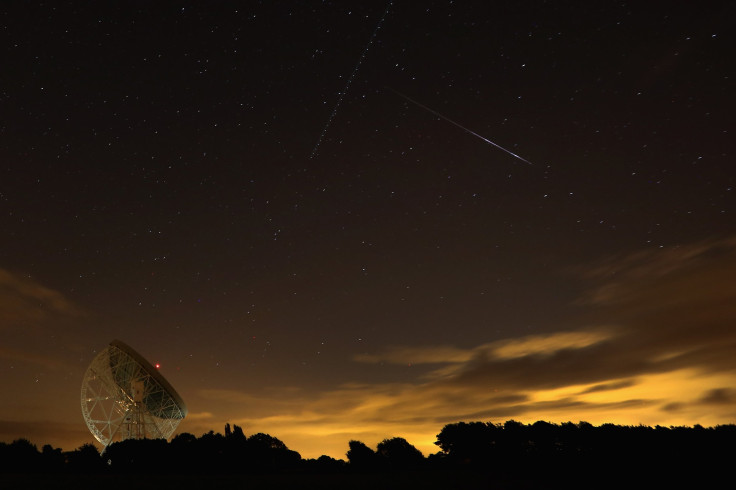Perseid Meteor Shower 2015 Live Stream: Watch The Perseids From Home; How To See The Summer Astronomy Event

The Perseid meteor shower peaks Wednesday night and it's expected to put on a pretty decent show. The moon will be practically invisible and, barring cloud cover, stargazers could see up to 100 meteors per hour. If you can't escape the city lights or are stuck at work or forced to stay home, there are several live stream options to choose from. Slooh's begins at 8 p.m. EDT and NASA's broadcast begins at 10 p.m. EDT.
The Perseids are so named because the meteors appear to come from the constellation Perseus, but it's comet Swift-Tuttle that's responsible for the meteoroids. As the comet makes it 133-year journey around the sun, it leaves a trail of dust and debris. Earth crosses this stream each year around the middle of August. The Perseids has been one of the most documented and viewed meteor showers, with recorded observations for 2,000 years, according to NASA. Unlike last year, when there was a bright moon, Earth's natural satellite won't be visible and will enter the new moon phase Friday.
Viewing the Perseids is easy enough. Find a dark place around 10 p.m. or later and let your eyes adjust to the darkness. If you can see a bunch of stars, you're on the right track. Look northeast to find the W-shaped constellation Cassiopeia. Perseus is just below that. The American Meteor Society and Sky & Telescope have good guides to finding these constellations.
Meteors can be seen throughout the night sky, so don't limit your range to just this area. And if you live in a city, don't despair. Here's our guide to viewing the Perseids from New York City, Los Angeles, Washington and more.
"The best opportunity to see the Perseid meteor shower is during the dark, predawn hours of Aug. 13," NASA's Bill Cooke writes. "The Perseids' streak across the sky from many directions. For optimal viewing, find an open skyline where you can view the horizon without obstructions such as buildings or trees. Try to view the Perseids as far away from artificial lights as possible. The darker the sky, the better viewing experience you can have."
Slooh's Perseids live stream includes a meteor viewing guide, the history of the Perseids and the mythology behind Perseus.
NASA's Perseid meteor shower live stream originates from the Marshall Space Flight Center in Huntsville, Alabama. The broadcast includes guest commentary and the experts will answer questions from social media.
© Copyright IBTimes 2024. All rights reserved.





















